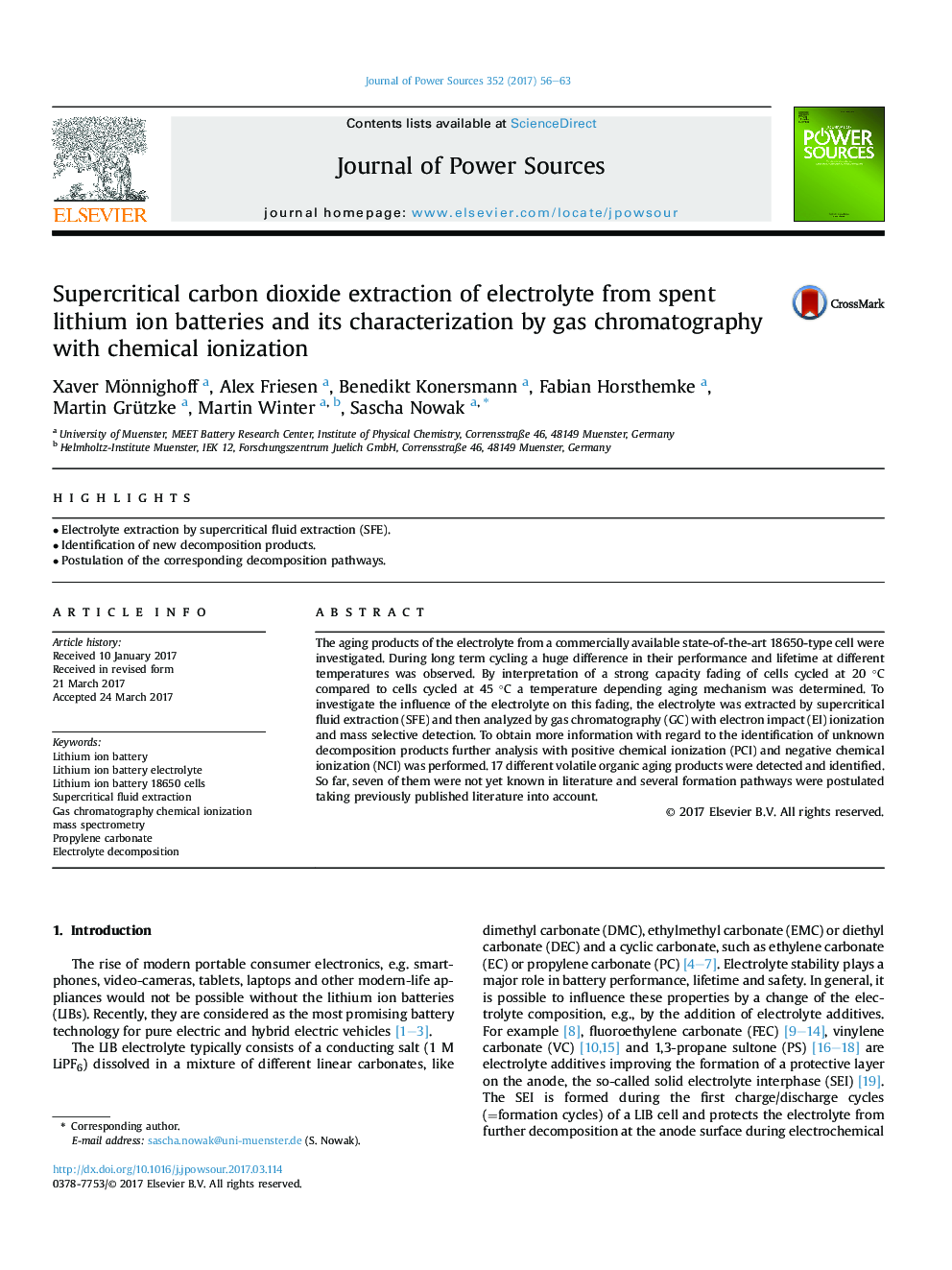| Article ID | Journal | Published Year | Pages | File Type |
|---|---|---|---|---|
| 5149234 | Journal of Power Sources | 2017 | 8 Pages |
Abstract
The aging products of the electrolyte from a commercially available state-of-the-art 18650-type cell were investigated. During long term cycling a huge difference in their performance and lifetime at different temperatures was observed. By interpretation of a strong capacity fading of cells cycled at 20 °C compared to cells cycled at 45 °C a temperature depending aging mechanism was determined. To investigate the influence of the electrolyte on this fading, the electrolyte was extracted by supercritical fluid extraction (SFE) and then analyzed by gas chromatography (GC) with electron impact (EI) ionization and mass selective detection. To obtain more information with regard to the identification of unknown decomposition products further analysis with positive chemical ionization (PCI) and negative chemical ionization (NCI) was performed. 17 different volatile organic aging products were detected and identified. So far, seven of them were not yet known in literature and several formation pathways were postulated taking previously published literature into account.
Keywords
Related Topics
Physical Sciences and Engineering
Chemistry
Electrochemistry
Authors
Xaver Mönnighoff, Alex Friesen, Benedikt Konersmann, Fabian Horsthemke, Martin Grützke, Martin Winter, Sascha Nowak,
